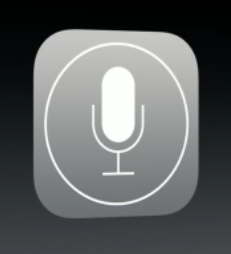
It’s fascinating to watch Google evolve from a “search engine” into something much more interesting and complex. The rise of mobile, the launch of Google Now, the improvements in voice search and the more recent, conceptual introduction of what Google is calling “conversational search” all point to where search at Google is headed.
The search metaphor is giving way to the personal assistant metaphor. The entry of Siri in the market roughly two years ago was the trigger of the transition.
Google search boss Amit Singhal was deeply enamored of Star Trek as a boy and, like others at Google, has openly fantasized about building the “Star Trek computer.” In other words, a computer one could simply speak to naturally and get correct and complete information.
Google Now, also sometimes called “predictive search,” tries to go beyond that purely “conversational” scenario by anticipating user needs and interests based on big data and personal search history (and movements). Google Now is highly imperfect but when it works it’s impressive.
While Google has only recently sought to move in the direction of “personal assistant,” Siri has always been an “assistant” but only recently aspired to be a search utility. Siri was explicitly conceived as a tool that would enable the accomplishment of specific tasks and not simply the retrieval and display of information.
As Apple has added more structured data feeds to what Siri can access it has improved — much of Siri’s value for users still comes from controlling the device and initiating calls, texts and emails rather than “searching” — however the great “Achilles heel” for Siri has been its limited dataset and lack of flexibility.
Although it wasn’t true when Siri was first introduced, Google has now exceeded Siri by bringing its web-search capabilities and into the virtual assistant equation. Google has a much deeper (albeit mostly unstructured) knowledge base to call upon vs. Apple. Thus for numerous questions where Siri didn’t have a structured response it would have to default to web search (i.e., Google): “I didn’t understand XYZ [query], shall I search the web for XYZ.”
Google would then ride to the rescue. In the Google universe it can bring increasingly structured answers to the same user queries but also its full index as a backup.
With the coming integration of Twitter, Wikipedia and especially Bing into Siri’s roster of data sources with iOS7, Apple adds a full web index and much more breadth to what Siri can do without having to hand off to a third party search engine (i.e., Google). And unlike current scenarios where users typically have to explicitly ask Siri to “search the web” to obtain XYZ information, soon they’ll just ask for “XYZ” — and Bing will supply the necessary or desired information.
The deal has potential to dramatically broaden Siri’s utility and usage frequency. Equally it could, if successful, significantly increase search query volume coming to Bing from iPhone users. The integration will need to be very “elegant” to win over users, who are accustomed to either using apps or Google in the Safari toolbar to “search the web” on the iPhone. Users will need to be educated about Siri’s new capabilities.
The integration of Bing’s search capabilities is a “crossing the Rubicon” of sorts for Apple as it declares that comprehensive data and search capabilities are necessary to fully deliver on the promise of the personal-virtual assistant.
Note: This is cross-posted on our Internet2Go site.
Categories: Articles

 2025 Conversational AI Intelliview: Decision-Makers Guide to Self-Service & Enterprise Intelligent Assistants
2025 Conversational AI Intelliview: Decision-Makers Guide to Self-Service & Enterprise Intelligent Assistants  Why Is ElevenLabs Building a Conversational AI Stack?
Why Is ElevenLabs Building a Conversational AI Stack?  Talk to the Web: How NLWeb Opens Conversational Access to Site Content
Talk to the Web: How NLWeb Opens Conversational Access to Site Content  Battling ‘Botenfreude’: The Power of People and Policy
Battling ‘Botenfreude’: The Power of People and Policy